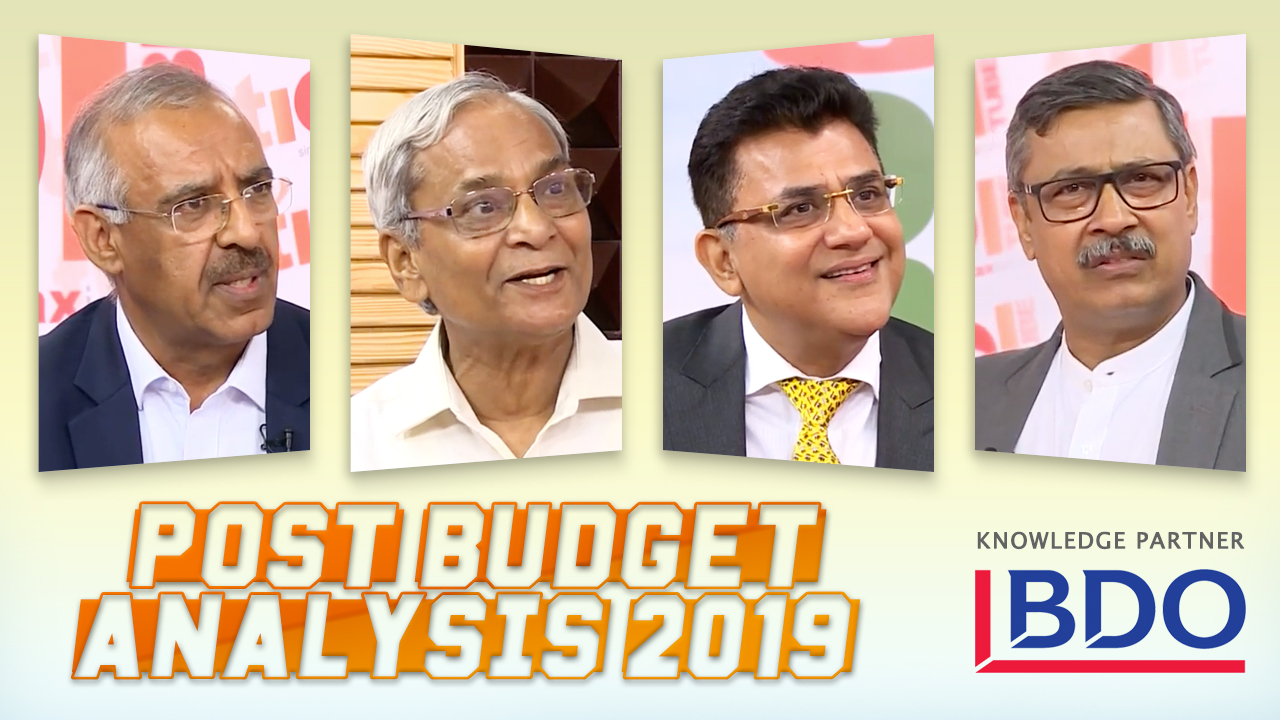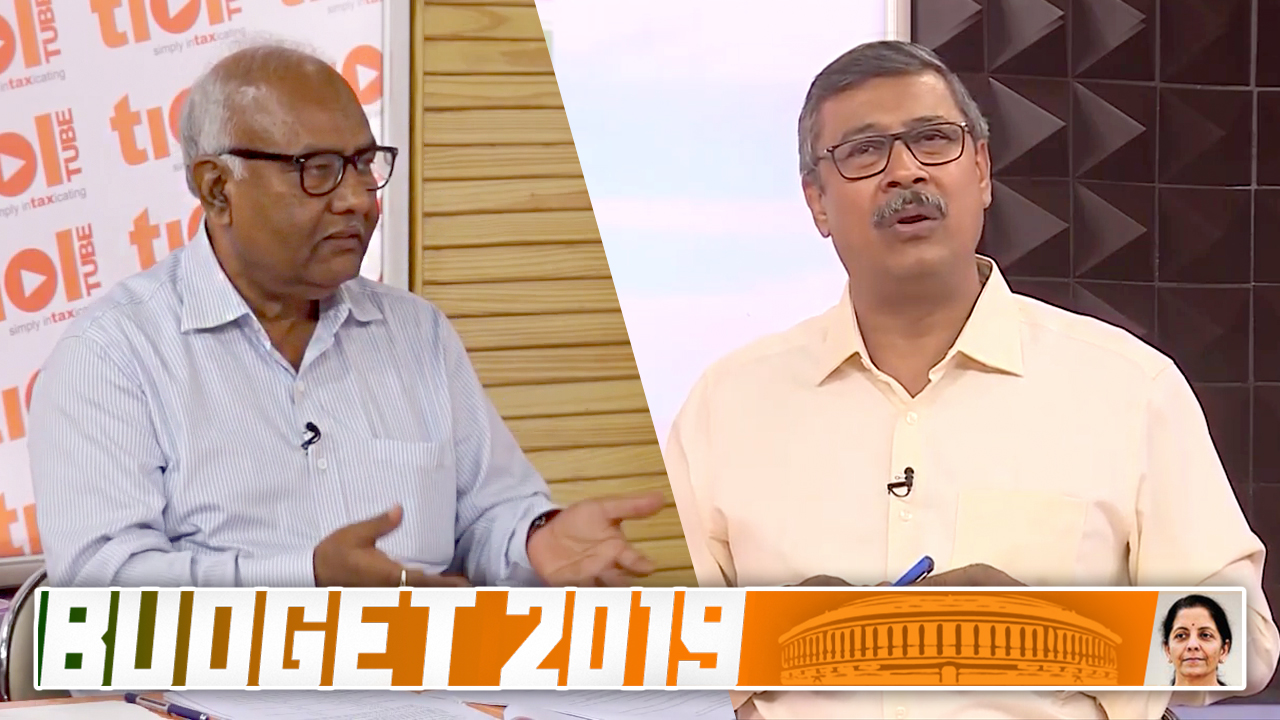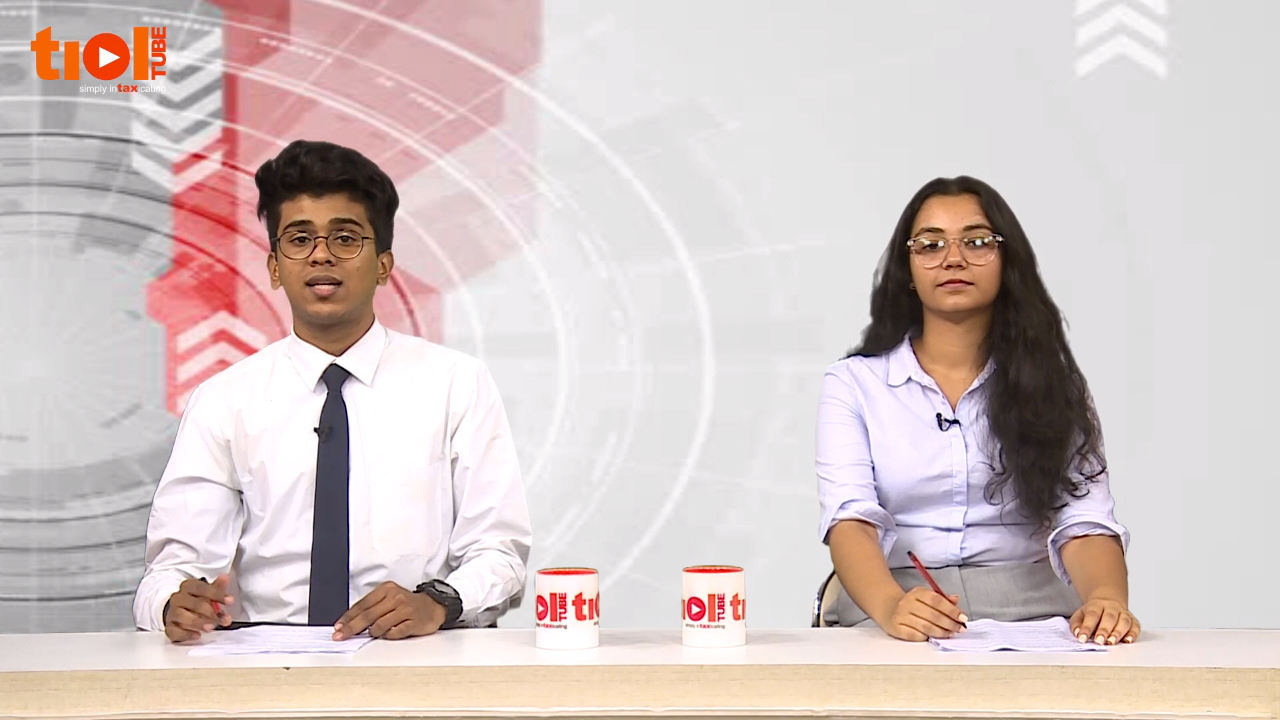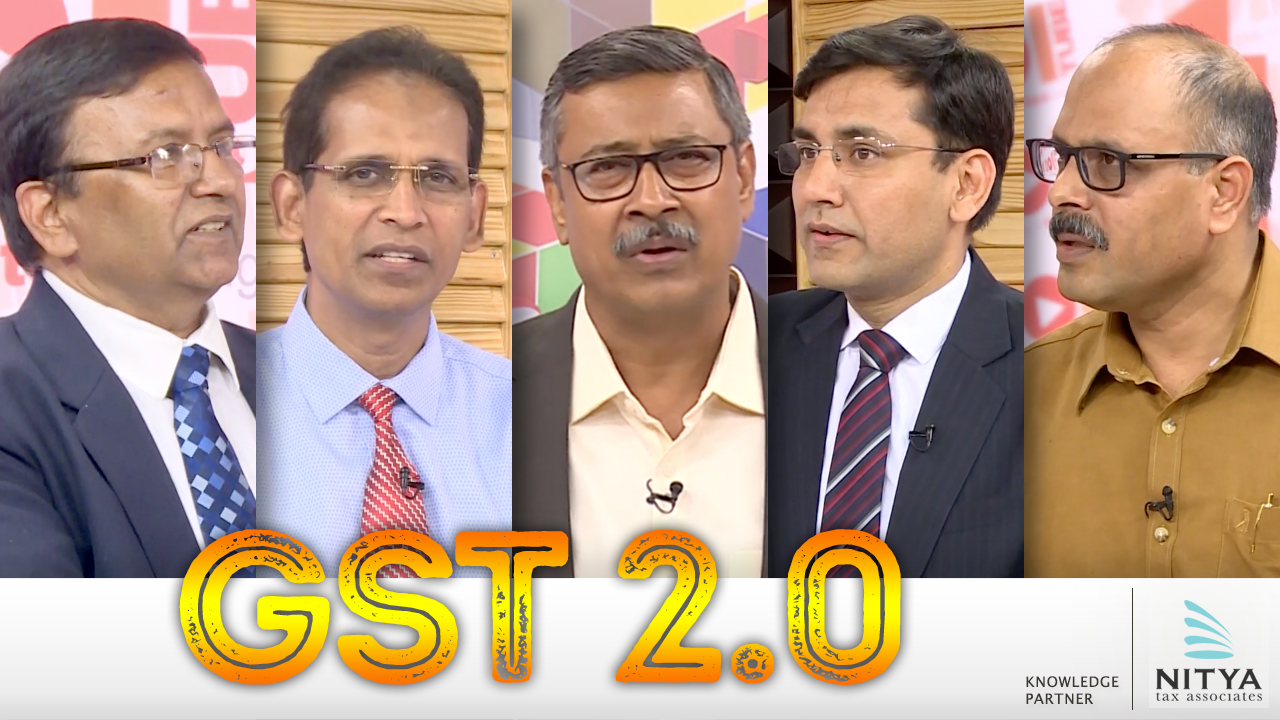|
SERVICE TAX
2019-TIOL-1477-HC-KERALA-ST
Boban Mani Vs CCE
ST - Condonation of delay - Appellant submits that he had transferred the business activities to his brother-in-law who was looking after the affairs of the company since December 2013; that since he had joined a 'preaching service mission' and was associated with their activities at Punjab and Hyderabad since July 2013 he was away from Kerala; that the when he was out of station, only his father was residing at the address furnished to the authorities and he (father) passed away in May 2015; that his father had not informed about receipt of the orders-in-original passed in December 2014; that he got information about the same only in August 2017 and, thereafter, had taken steps to obtain certified copies to prefer appeals; that the delay ought to have been condoned by the Tribunal.
Held: Bench is of the opinion that there exists a question of law as to whether the Tribunal had failed in considering the question as to whether the delay could have been condoned in terms of awarding cost - While considering whether there exists any 'sufficient cause' for condoning the delay, the Tribunal also could have considered about allowing the petitions on taking a liberal attitude, in terms of cost, in order to compensate the prejudices which may be caused to the opposite side - it is only just and proper to permit the appellant to pursue the appeals on merits after condoning the delay occurred - Costs imposed of Rs.7500/- per appeal for condonation of delay, which costs should be paid to the respondent within two weeks - Cases are remitted to the Tribunal, who on noticing the payment of costs, shall restore the appeals and dispose of the same on merits - on failure of the appellant to make payment of the cost ordered, the orders impugned will survive and continue to be in force: High Court [para 6 to 9]
- Appeals disposed of: KERALA HIGH COURT
2019-TIOL-1476-HC-MUM-ST
Central Warehousing Corporation Vs CST
ST - Appellant had not produced any evidence of not having passed on the service tax element to its customer on the auction sale done by it - Appellant had before the Commissioner (Appeals) sought time to produce the C.A. certificate and bills etc. in support of their claim but the same was not done leading the Commissioner (Appeals) to dismiss the Appeal - Even before the Tribunal, no such evidence was produced leading the Tribunal to uphold the findings of the lower authorities that the refund cannot be granted on account of unjust enrichment - CESTAT order, therefore, cannot be said to be perverse particularly so as burden of establishing that there is no unjust enrichment is on the assessee as the facts pertaining to it are in exclusive knowledge of the assessee - since the Appellant has miserably failed to even attempt to establish that there is no unjust enrichment, question does not give rise to any substantial question of law and, therefore, not entertained - question on the issue of the refund claim being barred by limitation are rendered academic - appeal stands dismissed: High Court [para 3 to 5]
- Appeal dismissed: BOMBAY HIGH COURT
2019-TIOL-1976-CESTAT-DEL
Khanna Constructions Vs CC, CGST & CE
ST - The assessees herein provided WCS to Millitary Engineering Services under the Ministry of Defence - The same was exempted from taxation vide Notfn No 25/2012-ST - Through the subsequent Notfn No 06/2015-ST, the exemption from service tax as was granted on services provided to the Government by way of construction, erection, commissioning, installation, completion, fitting out, repair, maintenance renovation or alteration of a civil structure or any other original work meant predominantly for use other than for commerce, was withdrawn - During the relevant period, the assessee paid the requisite tax - Later, Notfn No 9/2016-ST restored the exemption as was available before March 01, 2015 & was restored till March 30, 2020 - The services provided during 01.04.2015 to 29.02.2016 again became exempted - The assessee then filed refund claims - On adjudication, it was observed that no relevant documents were submitted in support of such claims - It was also observed that the refund claim was time barred & that the assessee had stated in affidavit that the tax amount was reimbursed by MES - Hence the claim was alleged to be hit by unjust enrichment - SCNs were served to the assessees proposing rejection of the refund claim - Such proposals were confirmed upon adjudication & then sustained by the Commr.(A) - Hence the present appeals by the assessees. Held: The MES is a unit of the Ministry of Defence & is the construction and maintenance agency for the Indian Army - Hence the Construction/Maintenance Services of MES since being linked to the structures/buildings, which are not to be used for commercial purposes but for Ministry of Defence, any service rendered to MES is not taxable - By virtue of Section 102 of the FA 2016 incorporating entry No 12A, the services provided by the assessee to MES become exempted retrospectively from 01.04.2015 itself - This is sufficient to hold that the intention of the Govt had been to exempt the services being provided to anyone other than commerce industries business or profession, i.e., the services provided to the Govt to remain exempted from service tax - As follows from the decision in JSEL Securities Ltd. Vs. CCE, Jaipur any amendment which is substantive in nature is to be applied retrospectively - In the present case, the amendment restoring the previous benefit cannot be held to be substantive - Post amendment of the Finance Act 2016, the amount paid by the assessee in the relevant period though was duty for such period, but due to the retrospective exemption for such period, the amount was no more a duty - Hence the amount paid by the assessee is a deposit made in excess: CESTAT Held: Section 11B(2) - The Commr.(A) relied on this provision to allege unjust enrichment - However, this section is inapplicable upon whole or part of any duty paid by the assessee - Once any amount is merely a deposit in excess & is not duty as such, the provisions of Section 11B(2) of CEA are inapplicable - Hence the amount paid as service tax during the relevant period is the amount which is not recoverable as tax - Besides, the service recipient herein is the MES which is an arm of the Government of India - Also, an affidavit signed by the assessee undertakes to return the amount to the MES which had been reimbursed to it - Such facts place the assessee out of the ambit of unjust enrichment - Hence the O-i-A rejecting the refund claim is quashed & the matter is remanded to the adjudicating authority to reconsider the claim: CESTAT
- Assessees' appeals allowed: DELHI CESTAT
2019-TIOL-1975-CESTAT-CHD
Haryana State Industrial And Infrastructure Development Corporation Ltd Vs CCE & ST
ST - The demand of service tax has been confirmed against assessee for providing the service for which the invoices has been raised by assessee - The facts are not in dispute that the assessee has not provided any service against the invoices for which the service tax has been demanded from the assessee - Moreover, the invoices in question are in the nature of Performa Invoices issued by assessee and no service tax is payable on Performa invoices, therefore, no service tax is payable by assessee for the invoices in question - The demand raised against the assessee is set aside - Consequently, no penalty is imposable on assessee: CESTAT
- Appeal allowed: CHANDIGARH CESTAT
2019-TIOL-1974-CESTAT-MUM
Deepak Fertilisers And Petrochemicals Corporation Ltd Vs CCE & ST
ST - The assessee-company provides taxable services classifiable under Renting of Immovable Property Service during the relevant period - In such time, the assessee had availed inadmissible Cenvat credit on capital goods and input services - SCN was issued to the assessee by invoking extended period of limitation, seeking recovery of such credit with interest & penalty - Upon adjudication, the duty demand was confirmed with interest & penalty - Hence the present appeal by the assessee. Held: The issue at hand is whether the assessee is eligible for Cenvat credit on inputs, capital goods & input services used in the construction and maintenance of malls during the period between October 2007 to March 2012 - It follows from the mandate of several judgments, that Cenvat credit is admissible to the assessee on the duty paid on capital goods & service tax paid on input services used in setting up the new premises, i.e. the mall, which is later provided on rent and service tax is paid on Renting of Immovable Property Service and the input services used in providing such output services - Besides, the demand is unsustainable being barred by limitation as the details the details of availing of the Cenvat credit of the duty paid on capital goods and service tax paid on input services used in setting up of the mall and used for providing the output service have been intimated to the Revenue - Hence the appeal succeeds both on merits as well as on limitation: CESTAT
- Assessee's appeal allowed: MUMBAI CESTAT
CENTRAL EXCISE
2019-TIOL-1475-HC-MUM-CX
CCGST & CE Vs USV Ltd
CX - Issue is whether the Respondent assessee is entitled to discharge its service tax liability on import of service under reverse charge basis under section 66A of the Finance Act of 1994 by utilizing the cenvat credit already availed – Revenue contention is that in view of Rule 3(4)(e) of the CCR, 2004 and Rule 5 of the Taxation of Services (provided from Outside India and Received in India) Rules, 2006 the cenvat credit cannot be untilized to discharge service tax on reverse charge basis.
Held:
+ View taken by the Tribunal in its order order dated 23rd March, 2018 = 2019-TIOL-982-CESTAT-MUM in respect of Rule 3(4)(e) of the CCR, 2004 now stands concluded against the revenue by the decision of the Gujarat High Court in the case of Panchmahal Steel Ltd., = 2015-TIOL-25-HC-AHM-ST, Delhi High Court in the case of Hero Honda Motors Ltd. = 2012-TIOL-1104-HC-DEL-ST and Punjab and Haryana High Court in Nahar Industrial Enterprises Ltd., = 2010-TIOL-868-HC-P&H-ST - Aforesaid decisions have been followed by this Court in Godrej & Boyce Mfg Co. Ltd = 2019-TIOL-1367-HC-MUM-CX to allow utilisation of CENVAT credit for payment of service tax on reverse charge basis GTA (Goods Transport Agency) and also in GTL Infrastructure = 2019-TIOL-1370-HC-MUM-ST in respect of discharge of service tax obligation on reverse charge basis on import of services under Section 66A of the Finance Act, 1994 by utilization of cenvat credit - there is no reason not to follow this Court's decision in GTL Infrastructure Limited (supra) – Revenue appeal dismissed: High Court [para 6, 9]
+ Insofar as the prohibition found in Rule 5 of the Taxation of Services (provided from Outside India and Received in India) Rules, 2006, Bench notes that the restriction provided in Rule 5 of the above rules is that the taxable service received from outside India shall not be treated as output services for availment of tax paid on any input services, however, there is no bar to utilize cenvat credit already availed to discharge service tax obligation on the import of services on reverse charge basis - This view is further supported by the fact that on 20th June, 2012 the Cenvat Credit Rules, 2004 were amended so as to introduce an explanation which bars utilization of cenvat credit to meet oblilgation of tax on output service on reverse charge basis – Revenue appeal dismissed: High Court [para 7, 9]
- Appeal dismissed: HIGH COURT OF BOMBAY
2019-TIOL-1981-CESTAT-BANG
Visaka Industries Ltd Vs CC, CE & ST
CX - Rule 7 of CER - Once the Revenue has not challenged the order of finalisation of provisional assessment, then it cannot reject the refund claim without issuing proper SCN - appellants have also produced the CA certificate certifying that incidence of duty has not been passed on to the ultimate consumers - doctrine of unjust enrichment is also not applicable in the case of provisional assessment - impugned order set aside and appeal allowed with consequential relief: CESTAT [para 6, 7]
: BANGALORE CESTAT
2019-TIOL-1979-CESTAT-AHM
Prince Swr Systems Pvt Ltd Vs CCE & ST
CX - Whether the assessee is entitled for cenvat credit on strength of ISD invoices when the ISD is not registered - in the case of M/s Dashion Ltd. - 2016-TIOL-111-HC-AHM-ST, the issue relates to pro-rata distribution of credit, whereas in the present case, the assessee is only one unit and there is no other unit, therefore, there is no question of pro-rata distribution - Hence, the case of the assessee is on better footing as compared to the decision given by the Gujarat High Court - Accordingly, no reason found why the credit should not be allowed - The impugned order is set aside: CESTAT
- Appeal allowed: AHMEDABAD CESTAT
2019-TIOL-1978-CESTAT-AHM
Print Vision Pvt Ltd Vs CCE
CX - The assessee was engaged in business of printing items such as Books, Magazine, Posters, Letter Head, Letter Pad, Envelop, Calender, Flayers Receipt Book, Product Folders, News Letter, Invitation Cards, Officer Stationary, Pad, Scriber Pad, Lebel, Stickers, Non-Corrugated Box and Diary and cleared the same without obtaining central excise registration or payment of duty - Revenue issued a SCN for demanding duty and seeking to impose penalty on assessee - It is apparent in the instant case that the assessee is engaged solely in the activity of printing - In the case of Gopsons Papers Ltd - 2015-TIOL-243-SC-CX , the items manufactured were partly printed and balance was to be printed by the user just like in the instant case in respect of all the forms - The ratio of decision of Apex Court in case of Gopsons Papers Ltd is squarely applies to the instant case - Relying on the aforesaid judgement, the impugned order is set-aside: CESTAT
- Appeals allowed: AHMEDABAD CESTAT
2019-TIOL-1977-CESTAT-DEL
Ultratech Cement Ltd Vs Principal Commissioner of CGST and Central Excise
CX - Assessee is in appeal against denial of service tax credit on 'Erection, Commissioning and Installation Service' in relation to making of structural duct support for capital goods such as duct support, platform, staircase, shed and other structural support in their factory premises wherein the assessee has undertaken the work for setting up of 10,000 TPD cement plant - Both, the original adjudicating authority as well as the first appellate authority have relied on this exclusion clause 'A' of definition of term 'Input Service' appearing in Rule 2(l) of Cenvat Credit Rules for denying the credit on the services used by assessee - It is not disputed that the services received by assessee is classified as "Erection, Commissioning and Installation service" - The exclusion clause 'A' does not cover the service in nature of "Erection, Commissioning and Installation Service" - No merit found in the impugned order and same is set-aside: CESTAT
- Appeal allowed: DELHI CESTAT
CUSTOMS
CIRCULAR
dgft18cir026
Action for recovery of penalty, pending Appeals/Reviews CASE LAWS 2019-TIOL-1479-HC-MUM-CUS
Rishabh Sanghvi Vs UoI
Cus - The grievance of petitioner is that the impugned communication rejecting the petitioner's request for cross examination of persons on whose statements the Revenue is relying upon is a clear breach of principles of natural justice - The statements of persons relied upon by Revenue are not being made available for cross examination only on account of alleged delay in making application - There is no time limit provided in the Act for completion of adjudication proceedings as its object is as to ensure that justice is done to the parties - In fact, the Supreme Court in Andaman Timber Industries 2015-TIOL-255-SC-CX and this Court in Kalpana Industries Ltd. 2018-TIOL-397-HC-MUM-CUS had held that in the absence of an opportunity to being given to the petitioner to cross examine the person on whose statement the Revenue is relying upon would render the order bad - In a matter of this nature relegating the petitioner to adopt the alternate remedy of filing an appeal to the Appellate Authorities would lead to the Officers of Revenue passing orders which are in breach of principles of natural justice - The part of the order dated 11th September 2018 is set aside which rejects the request for cross examination of persons on whose statements the Revenue is relying upon and direct the Commissioner of Customs to permit the cross examination of the three persons whose statements are being relied upon by the Revenue: HC
- Writ petition allowed: BOMBAY HIGH COURT
2019-TIOL-1973-CESTAT-MUM
Automark Technologies India Pvt Ltd Vs CCE
Cus - The assessee-company imported goods declared as Glass Beads, classified under Heading 70181020 of First Schedule to Customs Tariff Act 1975 - The goods were cleared after assessment and after the test results confirmed the declaration - Later, such consignments were taken up for investigation & thereafter, proceedings were initiated against the importer for mis-declaration of the goods, which were alleged to be glass microspheres, classifiable under Heading 70182000 instead - Such proceedings were initiated after invoking extended period of limitation - While the assessee did not contest the re-classification, the invocation of extended limitation was challenged in the present appeal. Held: It is clear from the structure of the relevant chapter in the First Schedule to the Customs Tariff Act, 1975 that the imported goods must fall under Heading 70182000 - It is seen that the relevant documents, such as certificate of origin and certificate of analysis, based on which the goods had been re-classified, were also available with the AO at time of import - Besides, the distinct classification adopted also point to the confusion prevalent in the classification - The same absolves the importer from any intent to mis-declare - Besides, the differential duty payable is restricted to the additional duties of Customs, on account of which very little gain would arise from mis-declaration - Hence the extended limitation need not be invoked - As the assessee paid the requisite duty during the relevant periods, no further amount is payable - As the demand & interest is now restricted to the normal period of limitation, no penalty needs to be imposed: CESTAT
- Assessee's appeals partly allowed: MUMBAI CESTAT |







